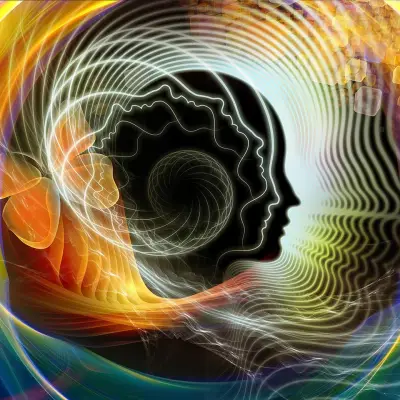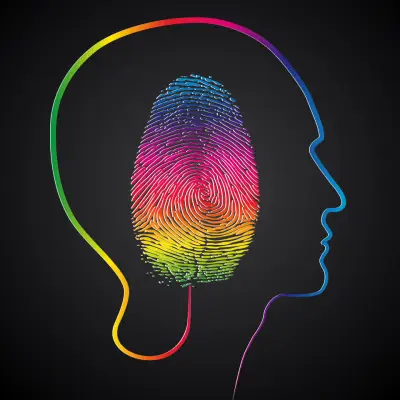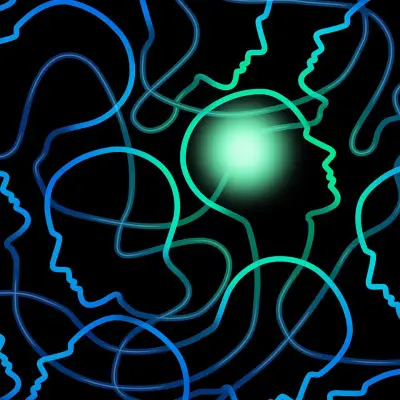Relationships are supposed to bring out the best in us, providing emotional, physical, and psychological support. But what happens when your needs aren’t being met? It's a question you might find yourself asking when the relationship you once felt so fulfilled by has left you feeling empty or disconnected. Understanding these signs is essential to decide how to improve your relationship or whether it's time to move forward.
Jump To:
- You Feel Lonely, Even When Together
- Physical Affection Has Significantly Decreased
- You Constantly Seek Validation Elsewhere
- Communication Has Broken Down
- You Feel Emotionally Drained
- You’re No Longer Excited About the Future Together
- You’ve Lost Interest in Physical Intimacy
- You Feel Like You’re Always Walking on Eggshells
- Your Self-Esteem Has Taken a Hit
- You Feel Trapped or Resentful
- 14 Steps for Rebuilding Connection
- Study Relationship Psychology for £29
Recommended for you!
Best Sellers1. You Feel Lonely, Even When Together

One of the most telling signs your needs aren't being met is a lingering sense of loneliness, even when your partner is right beside you. This happens when there’s a lack of genuine emotional connection, leaving you feeling isolated and unsupported. Emotional neglect in a relationship isn't always obvious but can leave you feeling unheard and invisible.
Example: You find yourself craving deep conversations or wishing your partner would show more interest in your feelings or thoughts. The absence of these intimate moments can make you feel emotionally disconnected, which, over time, might erode your bond.
Why Emotional Connection Matters
Emotional needs in relationships involve feeling valued and understood. When those needs aren’t fulfilled, it can create emotional distance and weaken the foundations of your relationship. If you feel your partner is emotionally unavailable, communication is key. Express how their lack of engagement impacts you.
2. Physical Affection Has Significantly Decreased

Physical intimacy, like holding hands, hugging, or casual touches, is more important than many realise. A noticeable lack of physical connection could indicate unmet needs in a relationship. It’s not necessarily about sex but about simple gestures that express love and affection.
What Is Physical Needs in Communication?
Physical needs don’t always refer to sexual intimacy. They can include things like comforting touches or a reassuring hand on your shoulder. The absence of these small but significant acts can make you feel unloved or unappreciated.
Tip: If physical affection is something you miss, consider discussing it with your partner. They might be unaware of how much these gestures mean to you.
3. You Constantly Seek Validation Elsewhere

If you find yourself seeking emotional support or validation from friends, family, or even strangers more than from your partner, it might indicate unmet emotional needs. This behaviour often stems from feeling underappreciated or undervalued in your relationship.
We all need to feel loved, respected, and supported. When these needs aren’t met by your partner, you may unconsciously look for that validation elsewhere, which can be damaging in the long term.
The lack of emotional support in a relationship can leave you doubting your self-worth and feeling emotionally depleted. Ask yourself: Are you being seen and heard, or does your partner take your needs for granted? It’s a question worth reflecting on.
4. Communication Has Broken Down

Healthy relationships are built on open, honest, and compassionate communication. If your conversations with your partner feel forced, superficial, or have become increasingly rare, it's a red flag. You may feel unheard or dismissed, which can result in unresolved issues piling up.
What Is Stonewalling in a Relationship?
Stonewalling is when one partner shuts down or withdraws from communication, making it impossible to have meaningful discussions. This behaviour creates barriers that can prevent you from resolving conflicts or expressing your needs.
Solution: It’s important to address communication issues early on. Let your partner know how their lack of engagement makes you feel and suggest ways to rebuild your connection, such as regular check-ins or couple's therapy.
5. You Feel Emotionally Drained

Feeling emotionally exhausted is another strong indicator of unmet needs in a relationship. If being around your partner leaves you feeling more anxious, stressed, or depleted rather than uplifted, it’s a sign that your emotional needs aren't being met.
Emotional unavailability in a partner can make you feel like you’re constantly giving without receiving anything in return. Over time, this imbalance can lead to burnout, making you question the health of your relationship.
What to Do: Take note of how you feel after interactions with your partner. Are they emotionally supportive, or do you feel more burdened? Having a candid conversation about your feelings might help re-establish balance.
6. You’re No Longer Excited About the Future Together

Planning a future with your partner should feel exciting and hopeful. However, if your future plans feel like a burden or you can’t envision growing together, your basic relationship needs might be unmet.
Without shared goals or aspirations, you may feel directionless, making the relationship feel stagnant. A lack of emotional and psychological connection often leads to uncertainty about the relationship's longevity.
Action Step: If this resonates with you, try having a future-oriented conversation with your partner. Discuss your dreams, goals, and what a fulfilling life together looks like.
7. You’ve Lost Interest in Physical Intimacy

A dwindling sex life can be both a symptom and a cause of unmet needs. Physical intimacy often relies on emotional closeness, and when that’s missing, your desire for physical connection can wane.
Emotional unavailability, unresolved conflicts, or feeling misunderstood can make intimacy feel more like a chore than an act of love. Addressing these root causes can help reignite the spark.
Tip: If you’re feeling disconnected, try rebuilding emotional intimacy first. Emotional connection often rekindles physical passion.
8. You Feel Like You’re Always Walking on Eggshells

If you’re constantly worried about upsetting your partner or avoid expressing your needs for fear of conflict, this is a sign that your relationship dynamics are off. Everyone deserves to feel safe expressing themselves in a relationship.
Your emotional needs might include a safe space for honest communication, trust, and reassurance. If your partner’s reactions make you feel guarded or anxious, it’s a significant issue that needs addressing.
What to Consider: Think about what a healthy relationship should feel like. If your partner’s behaviour makes you feel stifled, it’s time to address this imbalance.
9. Your Self-Esteem Has Taken a Hit

Relationships should uplift you, not make you doubt yourself. If your partner's lack of emotional or physical support has caused you to lose confidence or question your worth, this is a serious concern.
A lack of emotional connection to your partner can make you feel as if you’re not enough or that your efforts go unnoticed. This can have long-term effects on your mental health and self-esteem.
What to Do: Reflect on how your partner’s behaviour affects your self-worth. Consider seeking professional help to work through these emotions and decide your next steps.
10. You Feel Trapped or Resentful

Feeling trapped or harbouring resentment often indicates deep-rooted issues. These emotions can stem from unmet expectations, a lack of support, or feeling misunderstood.
Being unable to express your needs can lead to bitterness and emotional detachment. If you feel resentful, ask yourself: Are your needs reasonable, and have you clearly communicated them to your partner?
Recommended for you!
Best Sellers14 Steps for Rebuilding Connection
If you recognise any of these signs, know that you’re not alone, and there are ways to address the issue:
- Have an Honest Conversation: Openly express how you’re feeling and discuss your unmet needs. Use “I” statements to focus on your experience rather than placing blame.
- Be Specific About Your Needs: Clearly explain what you’re lacking, whether it's more quality time, emotional support, or physical affection. The more specific you are, the easier it is for your partner to understand.
- Listen to Your Partner: Give your partner the chance to share their perspective. Active listening can help both of you feel heard and valued.
- Find Solutions Together: Work collaboratively to come up with ways to meet each other’s needs. This could involve scheduling regular date nights, setting aside time to talk about your feelings, or finding new ways to show appreciation.
- Learn Each Other’s Love Languages: Understanding how your partner gives and receives love can help you connect more deeply. Love languages include words of affirmation, acts of service, receiving gifts, quality time, and physical touch.
- Prioritise Quality Time: Make an effort to spend meaningful time together without distractions. This can help rebuild your emotional bond.
- Practice Patience: Changes don’t happen overnight. Be patient and acknowledge the effort you’re both putting in to improve your relationship.
- Seek Professional Help: Consider attending couples counselling or therapy if communication feels challenging. A trained therapist can offer guidance and tools to help you reconnect.
- Set Boundaries and Expectations: Discuss what is and isn’t acceptable in your relationship and establish clear expectations for how to support each other moving forward.
- Focus on the Positives: Remind yourselves of what you love and appreciate about each other. Gratitude can foster a stronger connection.
- Practice Self-Care: Taking care of your own emotional wellbeing can make it easier to show up for your partner. Make sure your self-care routine is a priority.
- Rekindle Emotional Intimacy: Try sharing daily highlights, offering compliments, or engaging in activities you both enjoy. Rebuilding emotional intimacy can strengthen your overall connection.
- Be Open to Compromise: Relationships require give and take. Be willing to make compromises that work for both of you to achieve a balanced, healthy dynamic.
- Review Progress Together: Check in regularly to see how you’re both feeling and whether the changes you’ve made are helping. Adjust as needed to keep improving your relationship.
Study Relationship Psychology for £29
If you want to work on understanding your relationship dynamics and learn how to address unmet needs effectively, consider taking the Relationship Psychology Diploma Course with Centre of Excellence. For a limited time, you can enrol for just £29!













